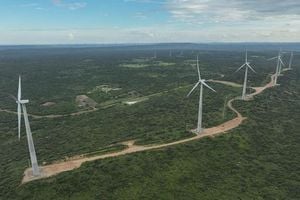DeepSeek, the AI startup from Hangzhou, China, is making waves not only nationally but also across the globe. Known for its advanced language models, including DeepSeek-V3 and DeepSeek-R1, the company is spearheading efforts to establish Chinese leadership in the artificial intelligence sector by 2035.
Chinese educational institutions have swiftly adopted DeepSeek’s models to craft AI courses, reflecting the country’s ambitious strategy to boost scientific and technological innovation. For example, Shenzhen University launched its AI program centered on DeepSeek’s models and addressed pertinent issues like ethical application and data security. Zhejiang University also began offering courses based on DeepSeek technology this past February, alongside Shanghai’s Jiao Tong University, which incorporated DeepSeek to refine its AI educational tools. Meanwhile, Renmin University has tapped the technology across various academic and research domains, aligning with national goals to build a "strong education nation" by 2035.
At a recent high-level meeting with President Xi Jinping, Liang Wenfeng, the founder of DeepSeek, underscored the significance of the startup within China's larger technological endeavors. This meeting not only heralded DeepSeek’s achievements but also spotlighted the role of governmental support as the nation pushes for educational reform to meet global standards.
Despite facing foreign scrutiny, particularly concerning personal data handling of its R1 chatbot, the sentiment within the Chinese tech community remains positive. At the Global AI Developers' Conference held in Shanghai, industry representatives expressed unwavering confidence in their capabilities to compete with Western tech firms. Sun Dasheng, from AI server manufacturer Puersai Computer, pointed out the relentless drive from China to advance its technology sector. "Now, our country is currently sparing no effort to move forward," he remarked.
Exhibitors at the conference displayed humanoid robots and showcased the open-source software developed by DeepSeek, highlighting the industry's growing reliance on its platforms. Mark Feng, product manager at Mobvoi, stated, "Now the (R1) model is available, we believe the industries or products related to these large language models will develop even more effectively." Cheng Dong, from Shanghai-based Tiangang AI Trading Platform, presented optimism, declaring the event as groundbreaking for China's AI capabilities.
Crucially, the emergence of DeepSeek is shifting perceptions about China's place within the global AI arms race. Prior to DeepSeek’s rise, many believed the country could not develop advanced AI models on par with its American counterparts. Lian Feng, another industry expert reaffirmed this optimistic narrative, claiming, "I believe there is still room for us to grow... I think in three or five years we will see even-better picture." The inexpensive development of the DeepSeek R1 chatbot ($5.6 million compared to much larger U.S. expenditures) provides tangible evidence of China's growing prowess.
Yielding comparable outcomes as similar Western generative AI systems, DeepSeek's R1 has proven to be a formidable player. U.S. President Donald Trump has characterized its release as a “wake-up call” for American tech firms, pointing to the remarkably low cost of its development compared to the staggering amounts funding U.S. AI projects. Trump’s comments have highlighted the competitive pressures building within this rapidly-evolving sector.
DeepSeek's influence extends beyond functionality; its open-source approach marks it as a beacon of collaboration—a stark divergence from the proprietary models proliferated by Western giants. Industry analysts reflected on how this innovative approach is perceived as redefining the narrative surrounding commercial tech advancement. "DeepSeek’s defining feature wasn’t a groundbreaking technological advancement – it was the willingness to make it open source," noted one informed perspective.
This new model not only challenges the conventional capitalistic narrative where innovation is often tied exclusively to privatization but also emphasizes the importance of communal knowledge sharing. The rise of DeepSeek disrupts the tech status quo, evoking what some term post-predatory capitalism, which values public goods and collaborative innovation over purely profit-driven motives. With this shift, there lies the potential for redefined competitive dynamics within the AI industry, as partners rather than rivals coalesce around common goals for advancement.
Looking forward, the rising presence of DeepSeek within the global AI scene signifies the potential for transformative changes across multiple industries. Among the many optimistic voices from the conference, Sun Dasheng encapsulated this sentiment by articulately stating, "I believe there is still room for us to grow... I think in three or five years we will see even-better picture." It seems likely then, as major milestones loom on the horizon, DeepSeek will be at the forefront of redefining artificial intelligence on the world stage.



